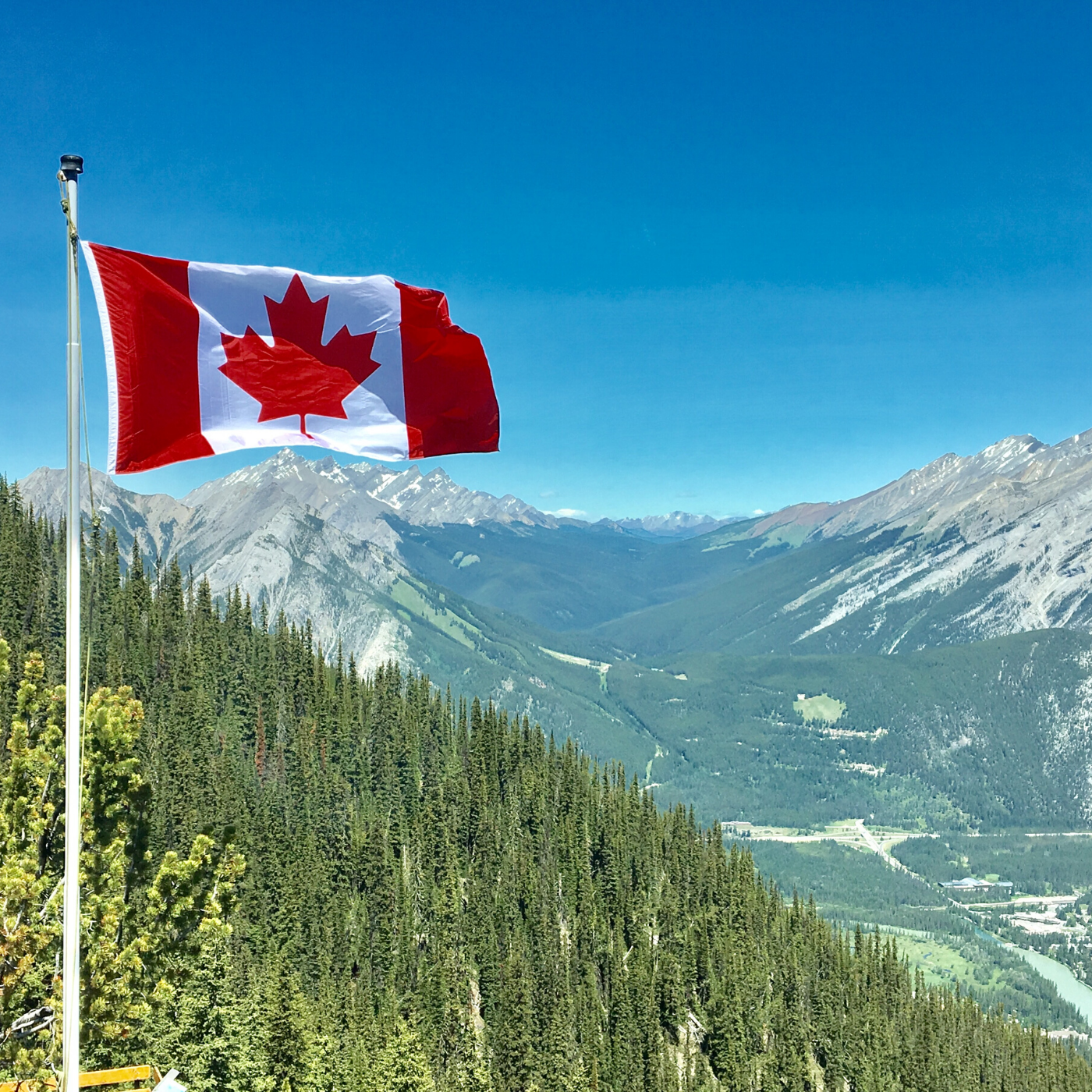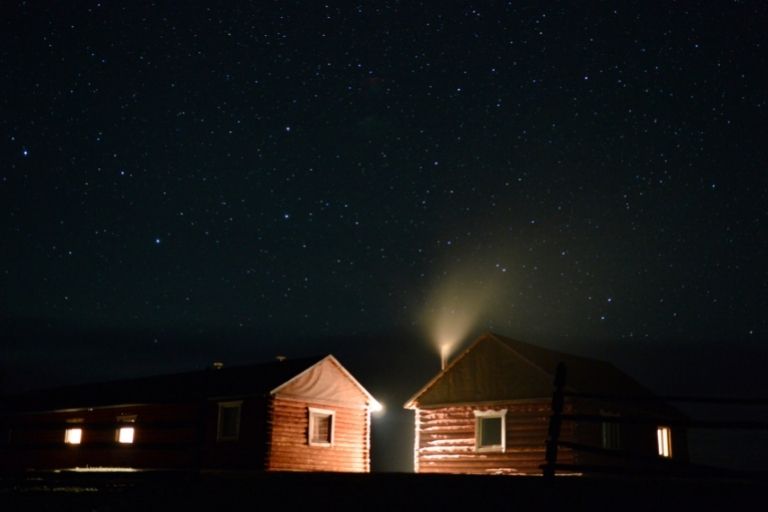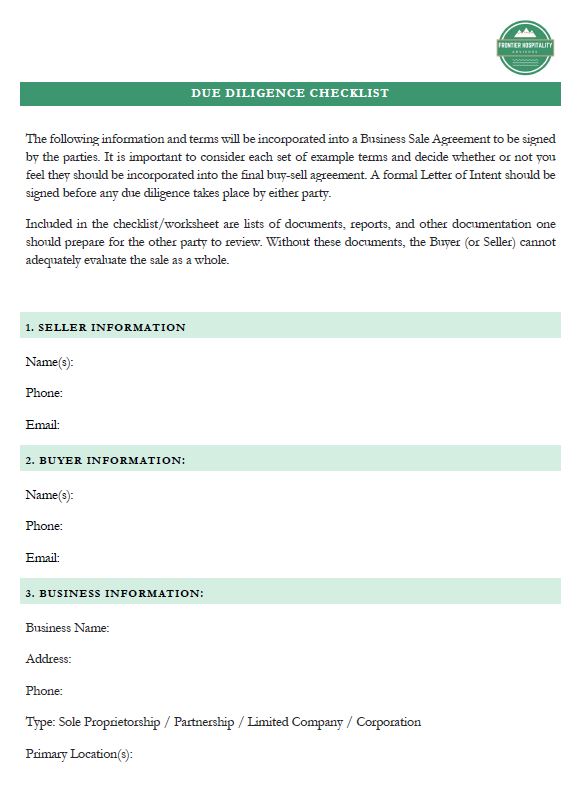10 Common Mistakes Made When Buying a Fishing & Hunting Lodge, Camp or Resort
Buying a fishing & hunting lodge, camp or resort is different than buying other types of businesses and there are more variables to consider.
Not considering these variables can lead to significant mistakes when you eventually buy. Below are 10 common mistakes that buyers make when they buy a fishing & hunting lodge, camp or resort.
Mistake #1: Not Developing a Specific Criteria
Answer the following questions to develop a specific criteria that will help focus your search:
- Satisfaction within your ownership lifestyle will directly impact your daily happiness. Are you looking for a remote, only come out of the bush a few times a summer fly-in type lifestyle, or would you like to be nearby a city centre?
- Price range that you’re comfortable putting at least a 25% down payment (and still have some additional money set aside for operating costs and capital improvements during the first year)?
- Province or State you want to purchase in?
- Region of Province or State you want to purchase in?
- Specific lakes or tourist attractions in the region you want to be nearby?
- Road access, boat access, ATV access or fly-in?
- Well established business or something that needs improvement?
- Ideal number of employees your business would operate with?
- Do you want to mostly serve domestic or international guests?
- Strictly housekeeping cabins or do you want to offer food service?
Run any potential acquisitions through the above criteria. This will help you act quickly when the right opportunity finally presents itself.
Mistake #2: Not Researching the Industry and Its Trends
Just like the housing market, there are good times to buy a fishing & hunting lodge, camp or resort and good times to sell. If you buy one of these types of businesses at the right time, tourism growth can provide an immediate healthy return on investment. This means doing your research on the current state of the industry, knowing what factors have a major effect on it and what the outlook is.
Know the answer to these questions before you sign on the dotted line:
- Who are your primary target customers? Is the business you’re considering heavily dependent on international guests? If so, how is the exchange rate forecast? Is it favorable for tourism operations? Are there any imminent threats to the tourism industry in the area?
- What kind of competition are you facing? Primary and Secondary – you’re not only in competition with similar businesses in the area, you’re in competition for people’s leisure travel money that could go towards a golf trip instead of a fishing trip for example. What secondary competitors are taking a chunk of business away from the industry? Are these secondary competitors growing or shrinking?
- How have similar businesses been doing the last couple years? You should have an idea of how other lodges, camps and resorts in the immediate area have been financially performing the last couple years. Has revenue been steadily increasing or decreasing?
These questions can help you better understand the industry you’re about to enter and be more informed when you are ready to buy.
Mistake #3: Investing in a Bad Location
In the fishing & hunting lodge, camp and resort industry, just like in any real estate, location is everything.
Do your research to find the geographical areas where the tourism industry is doing particularly well. There are areas with such strong customer loyalty that even during the 2008/09 economic collapse in the US (when everyone’s vacation budget was cut) the lodges still performed very well. It may be worth it to pay the extra to buy a lodge in one these more stable areas.
While lodges, camps and resorts can be successful in many different markets and locations, not understanding your location and the challenges that come with it can prove detrimental. Know the answers to the following questions:
- Does the property’s accessibility help or hinder the operation’s business value? An example of this would be a fly in fishing operation, while they offer a unique experience, the high fixed cost of air transport can prove troublesome during tough economic times.
- What competitive advantages does the area provide over your competition and is there an opportunity to develop a strong niche that you could build a strong brand around?
- Are there a lot of other lodges, camps or resorts in the area? It is ok if there are but have a plan for differentiation if this is the case.
These are important questions to answer when looking at a specific location. The beautiful thing about resource based hospitality operations is that any location can work. You just have to craft the right experience based on your location and price it appropriately.
Mistake #4: Buying for Passion More than For Business
The e-myth is a great book that anyone considering entrepreneurship should read. If you’re not in the mood for reading I’ll save you the time – the book basically says just because you enjoy fishing and might be good at it, doesn’t mean you’ll enjoy or be good at running a fishing lodge.
Upwards of 75% of lodges, camps and resorts are family operated. It’s key that you have a passion for the outdoors but you’re going to be wearing a lot of different hats, you’ll need to at least have a basic knowledge of the following:
- Sales, Marketing & Networking
- Accounting and corporate tax filing
- Financial & Inventory management
- Management & Delegation skills
Most of your days are going to go towards these tasks.
Mistake #5: Only Looking at “On-the-Market” Properties
If you limit your buying options to only what you see advertised online then you’d be picking from only 25% of what is actually for sale.
Most lodges, camps & resorts do not want to publicly display they are for sale because of the negative impact doing so could have on their business.
Most of these types of business are reliant on 80% return guests. If these loyal guests learn the business is for sale they may see it as a good opportunity to try something new.
Hopefully, you have developed a specific criteria for the type of business you’d like to buy. Now, make a list of the businesses that fit within it and consider reaching out to them. A lot of transactions happen this way, and most owners are actually waiting to be approached rather than actively seeking a buyer.
The best time to approach a lodge, camp or resort to inquire if they’d consider selling is right after their peak season. In the fishing lodge industry this would be September or October. As mentioned above, most of these businesses are family operated with as few staff as possible so by the end of the season ownership is tired, especially if they’ve been doing it for 20+ years.
Another excellent way to generate leads for properties that are not publicly advertised for sale is to post a Wanted Ad here. This section of our website is specifically intended to help solve the problem of lodge/resort owners not wanting to publicly advertise for sale by enabling them to come directly to you. Individuals that post wanted ads generally have several owners reach out advising that their property is for sale. All wanted ads are emailed out to 2,700 subscribers (many of which are current lodge owners). This is an excellent way to explore all potential purchase options that are out there.
Mistake #6: Not Understanding the Financials and Overpaying as a Result
If you want a viable business it starts with not overpaying for it in the first place. After all, owning a lodge, camp or resort is a business decision that one makes to gain a profit.
Focus on the fact that you’re buying a business, a stream of income or potential income that you’re going to use to support your family – you don’t want to be trying to run a lodge and have to go get another job to pay the bills.
Lodges, camps & resorts are very asset heavy and as such owners ask exorbitant asking prices because when you add up all of the assets and look at the cost of construction in these remote areas it may make sense….but the income stream has to make it feasible to run a successful business.
Most owners “shoot for the stars” when trying to sell their business and are willing to wait years hoping to fluke into the right buyer. Everyone in the fishing & hunting lodge, camp and resort industry knows the story of the wealthy guest that just had to have a certain lodge and drastically over paid for it. It’s far from the norm but it does occur.
In most cases it’s the owner’s retirement fund so I understand why they go as big as possible. But basing the price you’re willing to pay on other active listings is a big mistake. Most of these types of properties sell for significantly below asking price. 25% less than listing price is common.
Fishing & hunting lodges, camps and resorts are extremely hard to value. You need to have a lot of data on them before a pattern emerges as far as sale prices.
The income capitalization approach is based on the principle that the value of a lodge, camp or resort is indicated by its net return, or what is known as the present worth of future benefits. The future benefits of income-producing properties are net income before debt service and depreciation.
As a very general rule I would apply the following to any lodge, camp or resort you’re considering buying:
Average of last 3 year’s Revenue
Minus:
– Average of last 3 years Cost of Goods Sold & Supplies
– Average of last 3 years Property Taxes, Licenses & Dues
– Average of last 3 years Professional Fees
– Average of last 3 years Repairs & Maintenance
– Average of last 3 years Utilities, Telephone & Internet
– Average of last 3 years Travel, Meals & Entertainment
– Average of last 3 years Vehicle & Guest Transportation
– Average of last 3 years Salaries, Wages & Benefits (consider adjusting this expense to 20% of revenue)
– Insurance expense
– Average of last 3 years Office expense
– Average of last 3 years Advertising & Promotion
– Average of last 3 years “Other” expenses (postage, freight, land leases, equipment rental)
= Net Income
Divide the net income by .10 if the property and business are of very good quality or .14 if the property and business need improvement. Capitalization rates for lodges, camps and resorts are generally ranging between 10% to 14% currently.
Example:
$500,000 average annual revenue
– $350,000 expenses
$150,000 net income divided by .12 (average quality) = $1,250,000 estimated market value
If your purchase price falls outside these parameters you had best have a strong reason for paying so much. Another potential consequence is if the price you pay is above this general guideline you will likely have difficulty obtaining conventional financing.
If a lodge, camp or resort does not have an operating business or very little operating business, I would not recommend paying over 50% of what it would cost to develop a similar property.
Mistake #7: Not Negotiating with Patience
Negotiation is an essential part of any transaction, but one that is too often underutilized by fishing & hunting lodge, camp and resort buyers.
Once a buyer finds the ideal lodge, camp or resort it is crucial to resist the urge to get the transaction done as soon as possible. The prospect of owning the business is exciting, but at this point in the transaction you must focus on working with the seller to achieve the best possible scenario that will set you up for success when you take over.
Lodges, camps and resorts typically sell for 25% less than a seller’s initial asking price, so there is no need for a buyer to be shy when it comes to asking for a lower price — especially when the tourism industry is in a downturn like it is right now during the COVID-19 pandemic.
It’s likely the seller won’t jump at the initial offer, so in this case patience is key. Buyers shouldn’t budge significantly on their offers, but at the same time they should not be rigid to the point of forcing sellers to turn elsewhere.
In addition, it’s very important to negotiate having the seller stay involved with the business for at least one to two seasons to ensure key guests, employees and supplier relationships stay intact after the sale. Not to mention the helpful training and advice the seller can provide.
Don’t become too attached to a single fishing & hunting lodge, camp or resort. Maintain a running list of “key properties” that you can turn to if your top choice doesn’t pan out.
Mistake #8: Making Poor Underwriting Assumptions
If you’re going to buy a lodge, camp or resort you’ve got to know what kind of net income is plausible for you to expect.
Unsound underwriting assumptions may seem like an obvious mistake that could lead to making bad investment decisions and ultimately a cause of failure; however, it is surprising how many investors make decisions based on poor or incomplete information and upon seriously flawed assumptions.
Every assumption you make in developing an intelligent business plan for your lodge, camp or resort will propel the business forward.
Mistakenly basing your acquisition decision on rosy or grossly optimistic projections will lead to major problems when the tourism industry goes through a downturn (which absolutely will happen if you stay in the industry long enough).
Things you need to know to make accurate underwriting assumptions:
- The business’ average revenue earned per bed night or per guest cabin night
- Similar business’ average revenue earned per bed night or per guest cabin night
- Number of nights in the business’ operating season
- The business’ historical occupancy rate
- Similar business’ historical occupancy rate
- You must understand the business’ historical operating ratios
- You must understand similar business’ operating ratios
Your business plans should be strategically stress tested to accommodate potential downturn scenarios resulting from market cycles (and unexpected pandemics!).
What happens to the financial statements when occupancy is 40%, 50%, 60%, 70% & 80%?
Which expenses are fixed no matter what occupancy is and which are variable and will fluctuate with occupancy?
In order to minimize investment risk, comprehensive financial due diligence should be completed with all major assumptions being well supported and understood.
Mistake #9: Being Over-Leveraged With “Expensive” Capital
It is very tempting to borrow as much as possible for a fishing & hunting lodge, camp or resort investment.
But, as has been witnessed over and over in the industry, when cash flow goes negative, those that are over-leveraged often ended up getting wiped out.
Avoid the temptation to over-leverage, this may require you to seek additional outside investment partners, but when times get rocky, you will be in a better position to avoid a complete loss of your business.
Mistake #10: Not Having Adequate Working Capital Set Aside
As we are unfortunately witnessing during the COVID-19 pandemic, if you run out of working capital when cash flow drops off, your property will likely go into default with your lender. When that happens, unless things turn around, you will lose your property.
As a general guideline, it is advisable to carry a working capital balance equal to six to twelve months of debt service for your operating requirements.
In addition to working capital reserves for operating needs, fishing & hunting lodge, camp and resort properties should carry capital improvement reserves for ongoing property upgrades that may be needed to maintain the quality of experience that your guests have come to expect. This is essential to assuring that the business can remain competitive and not lose market share and thus decrease the overall value.
I recommend that long-term capital improvement budgets be completed for a minimum of the next five years and a plan is put in place for funding the budgeted improvements. This applies to not only the buildings and guest accommodations but the equipment guests utilize as well (ie. boats, motors, docks).
Conclusion
Entering the process of buying a fishing & hunting lodge, camp or resort fully prepared will ensure there will be fewer bumps in the road during the purchase process. By avoiding these 10 mistakes, buyers will be well on their way to a smooth transaction and a new, successful business.
This article has been prepared by Frontier Hospitality Advisor for general information only. Frontier Hospitality Advisor makes no guarantees, representations or warranties of any kind, expressed or implied, regarding the information including, but not limited to, warranties of content, accuracy and reliability. Any interested party should undertake their own inquiries as to the accuracy of the information. Frontier Hospitality Advisor excludes unequivocally all inferred or implied terms, conditions and warranties arising out of this article and excludes all liability for loss and damages arising there from.



This is great advice! The last think you want to do is pursue a dream and have it turn into a nightmare due to poor planning